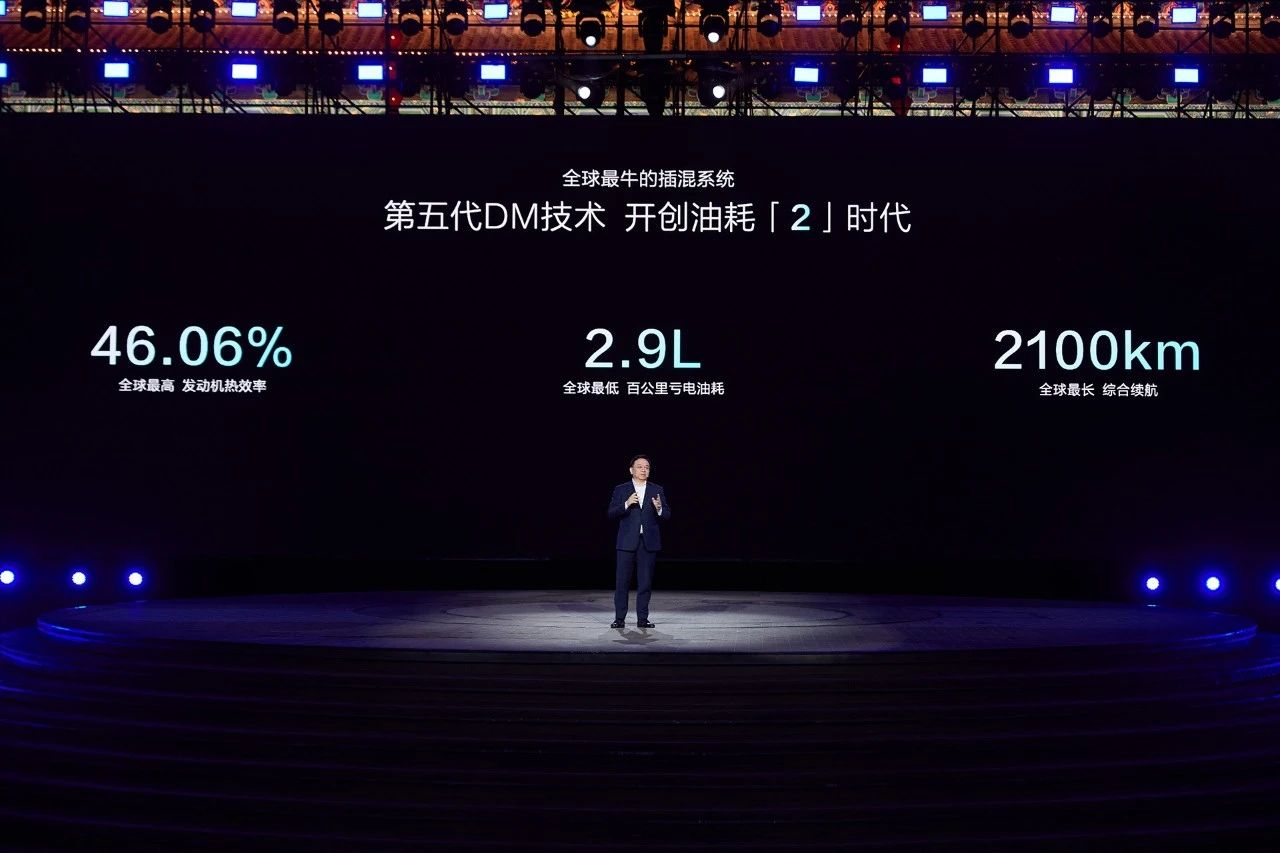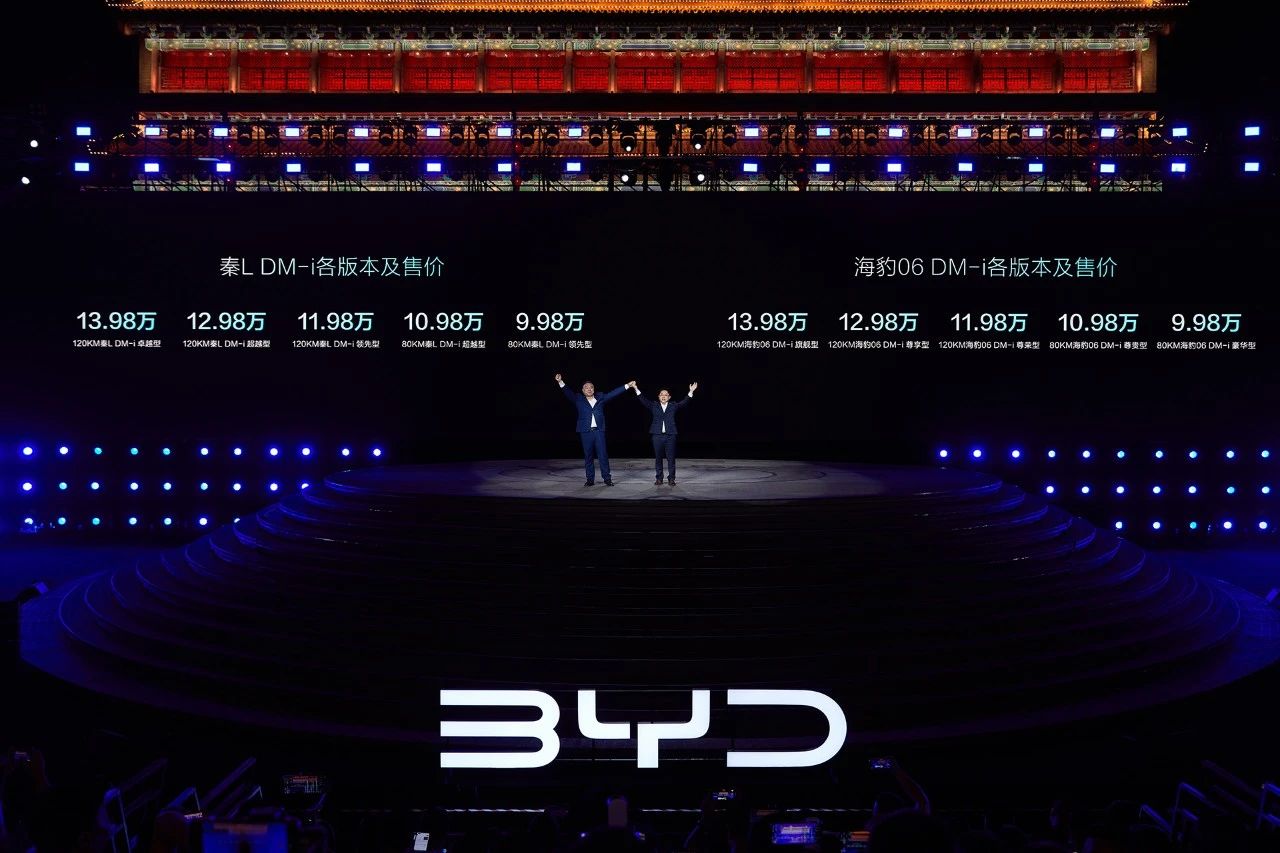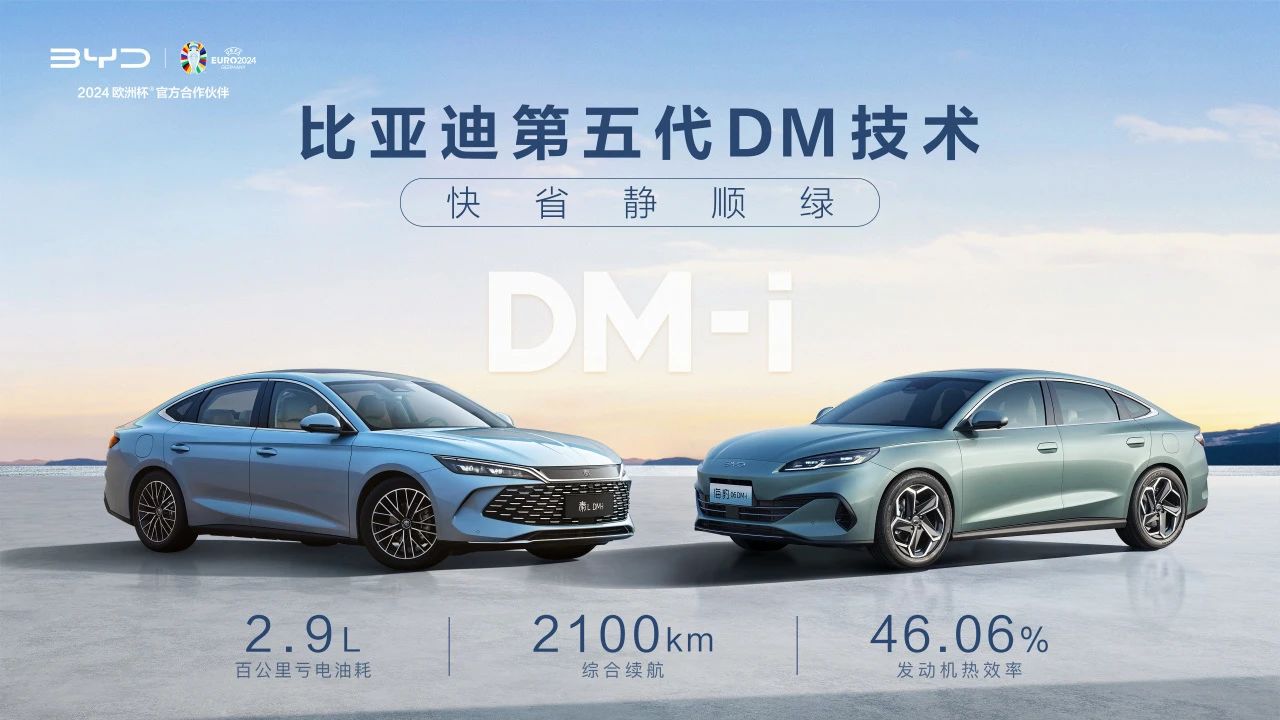BYD launches 5th-generation DM technology, debuting on Qin L DM-i, Seal 06 DM-i models
Shanghai (ZXZC)- On May 28, BYD unveiled its fifth-generation DM technology along with the Qin L DM-i and Seal 06 DM-i models in Xi'an city.

Photo credit: BYD
The fifth-generation DM technology boasts the world's highest engine thermal efficiency of 46.06%, the world's lowest fuel consumption of 2.9L/100km with battery power depleted, and the world's longest combined range of 2,100km, said BYD.

Photo credit: BYD
The fifth-generation DM technology debuts on the Qin L DM-i and Seal 06 DM-i models, whose volume production and delivery commenced upon their market release. Both two models come with 5 trim levels, priced between 99,800 yuan and 139,800 yuan.
According to BYD, the fifth-generation DM technology sets a new benchmark for plug-in hybrid technology with its advantages of speed, economy, quietness, smoothness, and environmental friendliness. These benefits are attributed to its electric-centric power architecture, all-temperature vehicle thermal management architecture, and intelligence-electric integrated electronic and electrical architecture.
The electric-centric power architecture features a high-efficiency engine specifically designed for PHEVs (plug-in hybrid electric vehicles), achieving the world's highest thermal efficiency of 46.06%. The EHS electric hybrid system, through an optimized structural design, increases power density by 70.28% and significantly reduces energy loss, reaching an overall working efficiency of 92%. The PHEV-dedicated Blade Battery increases energy density by 15.9%, ensuring sufficient power supply to the "heart" of the vehicle.

Photo credit: BYD
The industry-first all-temperature vehicle thermal management architecture elevates the thermal management system to the same level of importance as the power architecture, transforming from independent system management to an integrated overall architecture. This system includes engine compartment thermal management, battery thermal management, and cabin thermal management, working together to minimize energy consumption. This architecture saves up to 10% energy in high-temperature conditions and up to 8% in low-temperature conditions, ensuring both energy efficiency and comfort.
BYD added the intelligence-electric integrated electronic and electrical architecture introduces the industry's first seven-in-one plug-in hybrid power domain controller, achieving functional reuse and increasing power density by 18.3%. It also features the industry's first integrated chip, combining the VCU (Voltage Control Unit) and dual MCUs (Motor Control Units) into a three-brain system, enhancing chip computing power by 146%, significantly improving the vehicle's integration and performance.

